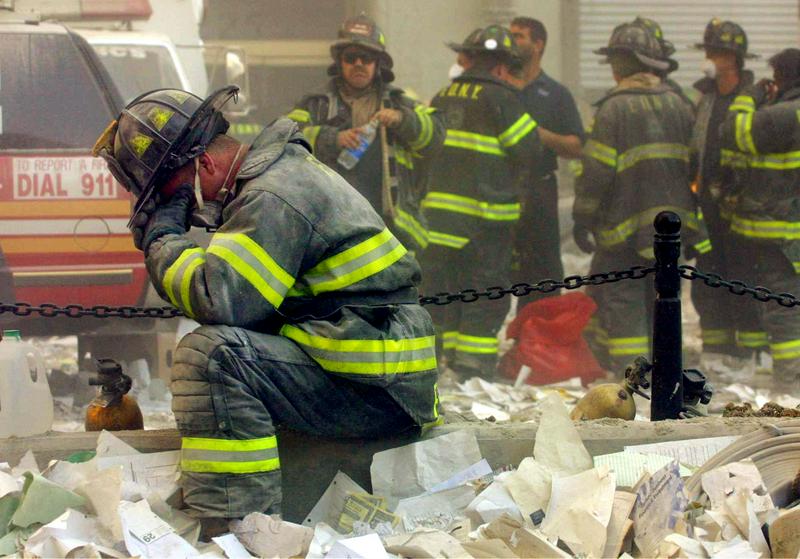Aftermath Of The September 11 Terrorist Attacks
By | September 10, 2021

On September 11, 2001, the single deadliest terrorist attack in human history was carried out by the extremist group al-Qaeda, led by Osama bin Laden, against the United States. The onslaught began at 8:46 A.M. Eastern time, when a Boeing 767 crashed into the side of the North Tower of the World Trade Center in New York City. In the confusion, the media and intelligence agents speculated that it was an accidental crash of a prop plane, but all such theories were quickly dispelled when another commercial airliner hit the South Tower only 17 minutes later at 9:03 A.M.
The Attacks
American Airlines Flight 77 plummeted into the Pentagon only 34 minutes later, causing an immediate collapse of a section of the building. Finally, a fourth plane, United Airlines Flight 93, crashed into a field in Shanksville, Pennsylvania after the passengers and crew heroically fought back against hijackers, forcing them to abandon their plan of striking again in Washington, D.C. Although the New York City Fire and Police Departments rescued thousands of people from the Twin Towers, both towers collapsed within two hours of the initial strike, taking the lives of everyone still trapped inside. In the end, the attacks resulted in 2,977 confirmed deaths (including 412 first responders), 25,000 injured, and several billion dollars in property damage.

Health Effects
Search and rescue began immediately with the New York City Fire Department entering what had become "Ground Zero" with the hope of finding survivors. They managed to save 18 people, some of whom had survived for over a day under the debris, but even 20 years later, a staggering 40% of victims had not been matched to any recovered remains, thanks to the incinerating heat and extreme force of the collapse. As a result of their efforts, many first responders have experienced side effects, including severe illness and death, from exposure to heavy metals and toxins like asbestos during the disaster. Over 250 F.D.N.Y. workers alone have died from 9/11-related illnesses, and thousands more have been diagnosed with cancer.
Legal Consequences
In an effort to prevent future attacks, a series of laws were fast-tracked through legislative channels in the United States, such as the Homeland Security Act of 2002 that created the Department of Homeland Security and loosened restrictions on how the government monitors electronic communications with suspected terrorists. With the birth of the Transportation Security Administration (T.S.A.) in November 2001, the days of racing through the airport to stop your true love from making the biggest mistake of their life or just greeting a loved one at the gate became a thing of the past.

In its haste to identify and bring down the leaders of the attack, the federal government attracted even more controversy with the opening of the Guantanamo Bay detention camp, thanks to its "enhanced interrogation methods" and tendency to keep detainees indefinitely without trial. In the end, it didn't help; American intelligence operatives identified a courier working for Bin Laden who eventually led them to his location in Pakistan, where he was killed by the U.S. Naval Special Warfare Development Group, or S.E.A.L. Team Six, on May 2, 2011.
The War On Terror
Of course, the United States's most significant response to 9/11 was the War on Terror, a loosely defined call to arms against global terrorism which sent American military operations to countries like Iraq, Pakistan, and the Philippines. Only one person, Congresswoman Barbara Lee, voted against the War in Afghanistan in the months following the attack, pleading in her statement before the House to "just pause, just for a minute, and think through the implications of our actions today so that this does not spiral out of control." Lasting 20 years, the War in Afghanistan became the United States's longest conflict, leaving over 2,000 American soldiers dead and nearly 20,000 wounded.

